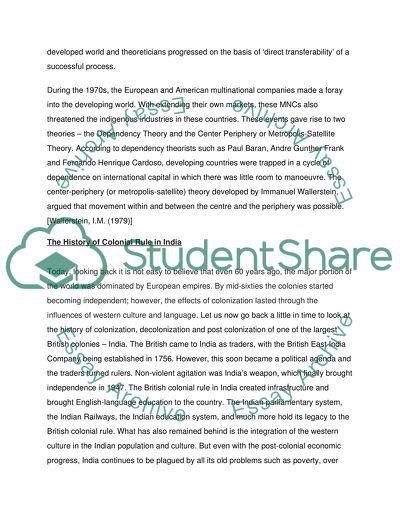Cite this document
(Concepts And Theories Of Postcolonial Development In India Case Study, n.d.)
Concepts And Theories Of Postcolonial Development In India Case Study. https://studentshare.org/history/1530268-postcolonial-development
Concepts And Theories Of Postcolonial Development In India Case Study. https://studentshare.org/history/1530268-postcolonial-development
(Concepts And Theories Of Postcolonial Development In India Case Study)
Concepts And Theories Of Postcolonial Development In India Case Study. https://studentshare.org/history/1530268-postcolonial-development.
Concepts And Theories Of Postcolonial Development In India Case Study. https://studentshare.org/history/1530268-postcolonial-development.
“Concepts And Theories Of Postcolonial Development In India Case Study”. https://studentshare.org/history/1530268-postcolonial-development.


